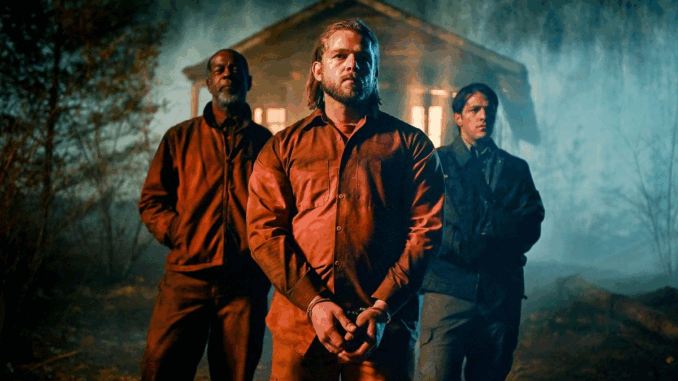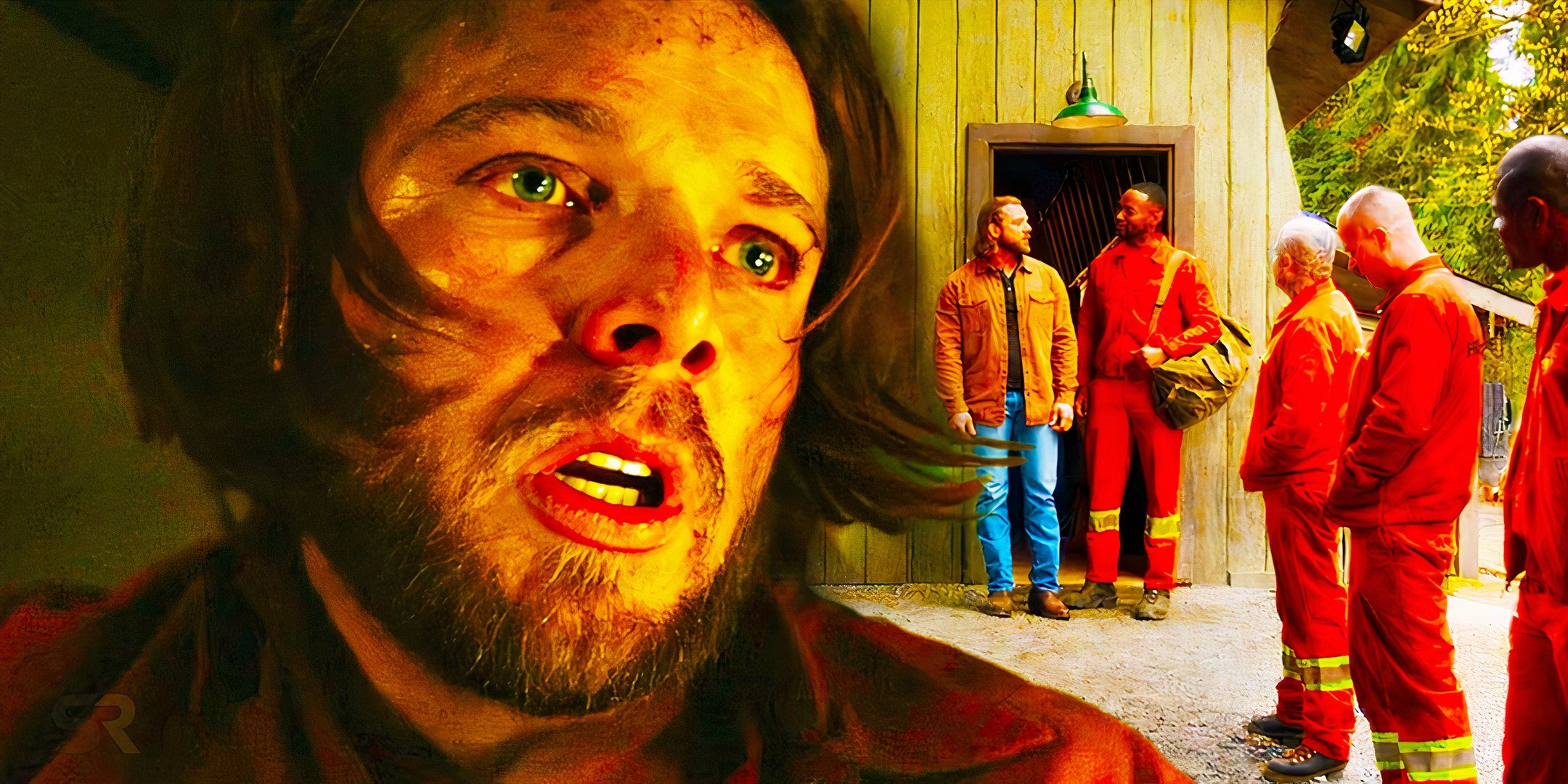
The Aftermath of a Betrayal
Three Rock was more than just a fire camp—it was a symbol of redemption. It offered incarcerated men a chance at dignity, purpose, and community. For many, it was the first time they were seen as something more than a case number or a conviction.
But all that changed when the toxic waste scandal came to light. The revelation that the camp was built on hazardous land—endangering the health of inmates and staff alike—was a betrayal so deep, it fractured not just trust in the program, but trust in Cal Fire as an institution.
Now, in the wake of lawsuits, public outrage, and a leadership vacuum, the region’s three primary fire units—Station 42, Three Rock, and the auxiliary prison work programs—are all in chaos.
Season 4 of Fire Country is poised to explore this institutional reckoning. And if it’s done right, it could become one of the most urgent, powerful, and socially relevant arcs of the series.
Station 42: A House Divided
Once the beating heart of Cal Fire operations in Edgewater, Station 42 is now grieving the death of Vince Leone, grappling with Sharon’s compromised reputation, and struggling to maintain morale after Gabriela’s exit and Bode’s emotional collapse.
Its future is uncertain. Key questions include:
-
Will it receive new leadership from outside the region?
-
Will Jake or Eve rise to stabilize it from within?
-
Will Cal Fire downsize or restructure the unit to reduce liability?
Station 42 is more than a building—it’s the symbol of what Cal Fire still could be. But unless its internal divisions are healed and its identity is reclaimed, it risks becoming the next institutional casualty.
Three Rock: Shuttered, But Not Forgotten
With its closure inevitable, Three Rock Camp is now a ghost site—empty of voices, purpose, and hope. But its legacy continues to reverberate.
Season 4 must explore:
-
What happens to the inmates who once trained there?
-
Will there be reparations for those exposed to toxins?
-
Will any attempt be made to rebuild the model, safely and ethically?
Characters like Freddy Mills, if brought back, could serve as public advocates for the camp’s legacy. Bode, once its fiercest defender, may now turn against it—or attempt to reform it in Vince’s memory.
Whatever happens, Fire Country must treat Three Rock not as a failed idea, but as a broken promise in need of redemption.
The Inmate Firefighter Program: At Risk of Collapse

Beyond Three Rock, the broader inmate firefighter program is now under scrutiny. This threatens not only rehabilitative opportunities for inmates, but also the staffing capacity for Cal Fire, which has relied on such labor for decades.
A realistic storyline might include:
-
State legislature hearings into prison labor
-
Public protests against unsafe working conditions
-
Cal Fire officials scrambling to justify the program’s survival
This tension offers a chance to explore critical themes:
-
The ethics of second chances
-
The price of public safety
-
The real-world value of lives society often ignores
Bode, Freddy, and even Manny—once an inmate, now a captain—can embody this moral dilemma.
The Rise of Reform: New Leadership, New Models
In response to the scandal, Cal Fire may attempt sweeping reforms. These could include:
-
Creating civilian-inmate partnerships with better protections
-
Hiring external oversight agencies to ensure program safety
-
Introducing trauma counseling and long-term support for firefighters post-incarceration
-
Launching pilot programs in other regions to restore faith in the mission
This would give the show a platform to address real-world policy while keeping the narrative rooted in personal journeys of growth and resistance.
Someone like Sharon, forced out of command but still respected, could become an advocate for reform—working behind the scenes to rebuild the program more ethically.
Edgewater at a Breaking Point
Beyond the internal turmoil, the community of Edgewater itself is facing an identity crisis. Firefighters were once heroes. Now, they’re symbols of corruption, cover-ups, and tragedy.
This shift in public perception could show up in:
-
Tensions between citizens and responders
-
Loss of funding due to political backlash
-
Media coverage distorting the reality of what’s happening on the ground
Edgewater’s civilians may begin to question: Can they still trust Cal Fire to protect them?
This conflict adds urgency to the actions of our main characters. They’re not just saving homes—they’re saving public faith.
Bode Donovan: From Prisoner to Reformer?
At the center of this institutional storm stands Bode Donovan, the man who once believed so deeply in the fire program, he gave everything for it.
Now disillusioned, grieving, and burned by the very system he fought for, Bode may be pushed into a new role:
-
Whistleblower
-
Outspoken critic of prison labor
-
Or, in a powerful twist—someone who helps rebuild it from within
His journey from inmate to reformer could become the emotional arc that ties all of Season 4’s institutional plotlines together.
A Region Rebuilt or Left in Ashes?
By the end of Season 4, the future of fire service in Edgewater must be answered:
-
Will Cal Fire emerge humbled and restructured?
-
Will new programs be born to replace what was lost?
-
Will those who suffered—like Freddy, Sharon, and Bode—finally see justice?
The answers don’t need to be clean. But they must be earned. Because this isn’t just about one camp, one station, or one scandal—it’s about how we respond when the institutions meant to protect us fail.
Conclusion: Burning Down to Build Again
The destruction of Three Rock is not the end of the story. It’s the beginning of a larger reckoning.
Fire Country has the rare opportunity to tell a story about reform from within, about the people who don’t give up on broken systems—but who demand better from them.
Edgewater, Station 42, and Cal Fire stand at a crossroads.
If they walk the same path, they may burn again.
But if they choose courage, truth, and change,
they may yet rise into something stronger than before.
